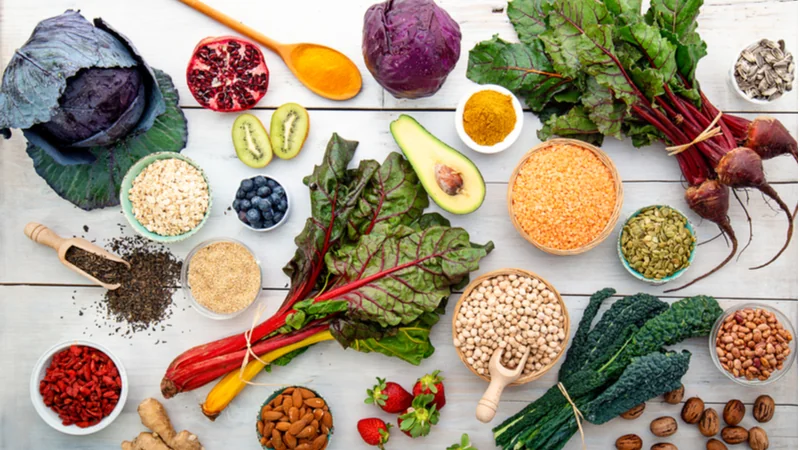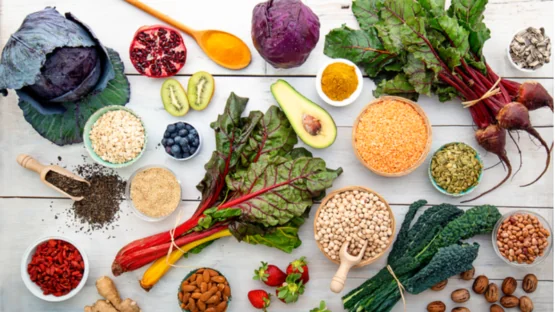A study published in Science by Dr. Jennifer A. Wargo and her colleagues spanning multiple centers recently examined if dietary fiber and commercially available probiotics affect immunotherapy response in cancer patients [1]. They hypothesized that bacteria from two probiotic species would be associated with a response to this therapy.
The human patients
By using stool samples, the researchers examined the gut microbiomes of 438 patients with melanoma. Most of the patients were receiving systemic therapy for metastatic melanoma (n=321) and were classified as responders or non-responders based on Response Evaluation Criteria in Solid Tumors (RECIST).
Of these patients, 87% were receiving immune checkpoint blockade (ICB) immunotherapy. This type of therapy uses monoclonal antibody-based therapies to block the desired interaction at immune checkpoints. For instance, a common treatment used to prevent T lymphocytes from attacking other cells is an immune therapy called anti-programmed cell death 1 (anti-PD-1). Most of the patients in this study on ICB immunotherapy were also on anti-PD-1 immunotherapy. Data was collected on dietary habits and probiotic supplements used within the past month.
No significant differences with probiotic use in late-stage melanoma patients
49 out of 158 of the late-stage melanoma patients were on a probiotic supplement in the past month. The authors noted that the patients on the probiotics had lower BMIs, reported higher consumption of vegetables and legumes, and were less likely to be on statins than patients who were not taking a probiotic supplement. When looking at survival rates in patients treated with ICB immunotherapy, there were no significant differences between patients who took a probiotic supplement and patients who did not.
The effects of probiotics on larger tumors in mice
Germ-free mice received donor stool from responders as determined by RECIST. These mice were then given one of two types of commonly purchased probiotic strains, Bifidobacterium longum and Lactobacillus rhamnosus, as well as treatment with immunotherapy to treat the tumors. Compared to the control group, the mice on either of the probiotics had significantly larger tumors. The research found similar results when they did the same experiment in non-germ-free mice and specific pathogen-free mice that had melanoma tumors.
Probiotics vs. sterile water in mice
The researchers then examined mice fed either of two probiotic strains alongside a control group fed sterile water. The treated mice had reduced levels of two immune cell types that play important roles in helping to fight cancer: interferon-γ and CD8+ T cells. The treated groups also had reduced cytotoxic t-cells in tumor tissues, which are immune cells that aid in helping fight tumor cells. The authors cite research that has shown similar and opposite findings, and follow with:
Together, these studies support the need for more careful investigations of the effects of current commercially available probiotic formulations on immunity and cancer immunotherapy response.
Fiber slowed tumor growth in mice and humans
Among mice receiving an anti-PD-1 therapy, mice on a fiber-rich diet showed delayed tumor growth compared with mice on a fiber-poor diet. The researchers also profiled the gut microbiomes of the mice, and there were significant differences in the fiber-rich and fiber-poor diets. Immune cell analysis revealed that the mice fed a high-fiber diet had higher CD45+ T cells in their tumors and higher T cell activation and interferon responses.
To assess the effects of dietary fiber intake on ICB immunotherapy response in humans, the researchers chose the National Cancer Institute Dietary Screener Questionnaire. Even though a fiber intake of 20 grams per day was considered sufficient, only 30% of people on ICB immunotherapy, 37 out of 128, reached this level.
Additional analysis showed that higher fiber intake was highly correlated with vegetables, fruit, whole grains, and, to a lesser extent, calcium intake. People who ingested less than 20 grams per day were more likely to be classified as obese and to be on blood pressure-reducing medication.
Patients who consumed sufficient fiber demonstrated improved survival rates. After adjustment for clinical parameters, every 5-gram increase in fiber intake corresponded with a 30% lower risk of cancer progression or death. In this study, similar results were found when assessing dietary fiber intake in relation to ICB immunotherapy response. People who consumed sufficient fiber and did not take probiotic supplements had significantly greater survival rates. The authors follow the human diet data results with:
Ongoing dietary intervention studies in the setting of ICB are critical for establishing whether a targeted and achievable diet change at the initiation of ICB can safely and effectively improve outcomes (NCT04645680).
Conclusion
While the researchers stressed the need for further research and independent validation, this study shows that dietary fiber and probiotic use are associated with different outcomes in humans and mice on ICB immunotherapy.
This study highlights an overarching point and a valuable message for clinicians and patients: this type of research comes with a need for additional careful investigations with interdisciplinary and multi-center collaboration. Specific supplements may need to be taken with caution within the context of specific scenarios, such as ICB immunotherapy.
The authors concluded with:
These notable (and perhaps unexpected) findings from studies in this observational patient cohort are corroborated by parallel studies in preclinical models with preliminary mechanistic insights. In light of these collective results, dietary habits and probiotic supplement use should be considered in patients receiving ICB and in efforts to modulate the gut microbiota. These factors should be more thoughtfully evaluated in strategies to improve cancer outcomes.
Literature
[1] Spencer, C. N., McQuade, J. L., Gopalakrishnan, V., McCulloch, J. A., Vetizou, M., Cogdill, A. P., Khan, M., Zhang, X., White, M. G., Peterson, C. B., Wong, M. C., Morad, G., Rodgers, T., Badger, J. H., Helmink, B. A., Andrews, M. C., Rodrigues, R. R., Morgun, A., Kim, Y. S., Roszik, J., … Wargo, J. A. (2021). Dietary fiber and probiotics influence the gut microbiome and melanoma immunotherapy response. Science (New York, N.Y.), 374(6575), 1632–1640. https://doi.org/10.1126/science.aaz7015



